
Newton Leroy Gingrich is an American politician and author who served as the 50th speaker of the United States House of Representatives from 1995 to 1999. A member of the Republican Party, he was the U.S. representative for Georgia's 6th congressional district serving north Atlanta and nearby areas from 1979 until his resignation in 1999. In 2012, Gingrich unsuccessfully ran for the Republican nomination for president of the United States.
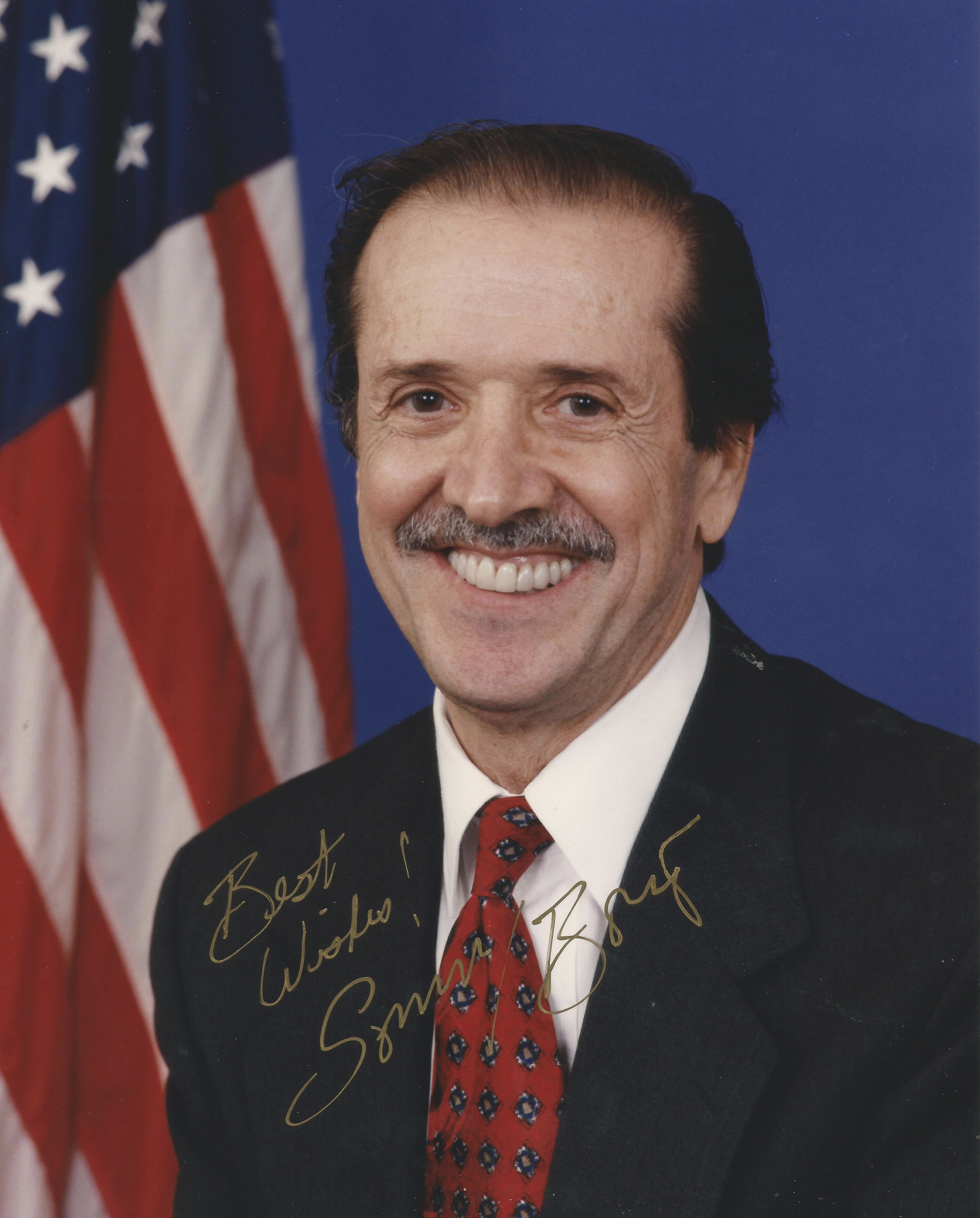
The Republican Revolution, Revolution of '94, or Gingrich Revolution, refers to the Republican Party (GOP) success in the 1994 U.S. mid-term elections, which resulted in a net gain of 54 seats in the House of Representatives, and a pick-up of eight seats in the Senate. On November 9, 1994, the day after the election, Senator Richard Shelby of Alabama, a conservative Democrat, changed parties, becoming a Republican; on March 3, 1995, Colorado Senator Ben Nighthorse Campbell switched to the Republican side as well, increasing the GOP Senate majority.
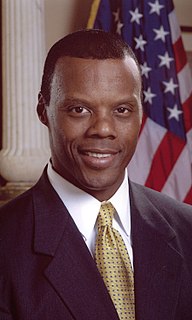
Julius Caesar Watts Jr. is an American politician, clergyman, and athlete. Watts was a college football quarterback for the Oklahoma Sooners and later played professionally in the Canadian Football League. He served in the U.S. House of Representatives from 1995 to 2003 as a Republican, representing Oklahoma's 4th Congressional District.

Richard Keith Armey is an American economist and politician. He was a U.S. Representative from Texas's 26th congressional district (1985–2003) and House Majority Leader (1995–2003). He was one of the engineers of the "Republican Revolution" of the 1990s, in which Republicans were elected to majorities of both houses of Congress for the first time in four decades. Armey was one of the chief authors of the Contract with America. Armey is also an author and former economics professor. After his retirement from Congress, he has worked as a consultant, advisor, and lobbyist.

Leon William Paxon is an American lobbyist and former member of the United States House of Representatives from New York.
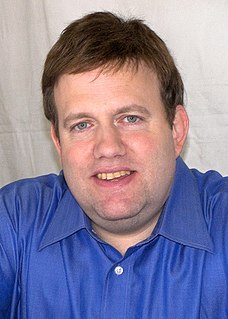
Frank Ian Luntz is an American political and communications consultant, pollster, and pundit, best known for developing talking points and other messaging for Republican causes. His work has included assistance with messaging for Newt Gingrich's Contract with America, and public relations support for pro-Israel policies in the Israeli–Palestinian conflict. He advocated use of vocabulary crafted to produce a desired effect; including use of the term death tax instead of estate tax, and climate change instead of global warming.

James Randolph Evans is an American lawyer and diplomat who served as the United States Ambassador to Luxembourg from 2018 to 2021. He presented his credentials on June 19, 2018 to the Grand Duke of Luxembourg. A member of the Republican Party from Georgia, he specializes in litigation, as well as professional, legal and government ethics. Evans is a partner at the global law firm Squire Patton Boggs.
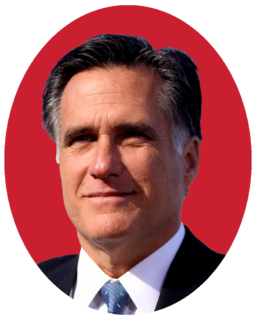
The 2012 Republican National Convention was a gathering held by the U.S. Republican Party during which delegates officially nominated former Massachusetts Governor Mitt Romney and Representative Paul Ryan of Wisconsin for president and vice president, respectively, for the 2012 election. Prominent members of the party delivered speeches and discussed the convention theme, "A Better Future." The convention was held during the week of August 27, 2012, in Tampa, Florida at the Tampa Bay Times Forum. The city, which expected demonstrations and possible vandalism, used a federal grant to bolster its police force in preparation. Due to the approach of Hurricane Isaac, convention officials changed the convention schedule on August 26, 2012; the convention came to order on August 27, 2012 and then immediately recessed until the following afternoon because of the risk of Isaac hitting Tampa.
Katon Edwards Dawson is an American politician from the state of South Carolina, former chairman of the South Carolina Republican Party and was a 2009 candidate for chairman of the Republican National Committee.
John Bruce "Chip" Saltsman, Jr. is an American politician who has served as chairman of the Tennessee Republican Party from 1999 to 2001, senior political advisor to former Senate Majority Leader Bill Frist, and manager of Mike Huckabee's 2008 presidential campaign. He also worked for the Chuck Fleischmann campaign in Tennessee's 3rd district from 2009 to 2010.
The following is a timeline of major events leading up to the United States presidential election of 2012. The election was the 57th quadrennial United States presidential election and was held on November 6, 2012.

The 1994 United States elections were held on November 8, 1994. The elections occurred in the middle of Democratic President Bill Clinton's first term in office, and elected the members of 104th United States Congress. The elections have been described as the "Republican Revolution" because the Republican Party captured unified control of Congress for the first time since 1952. Republicans picked up eight seats in the Senate and won a net of 54 seats in the House of Representatives. Republicans also picked up a net of ten governorships and took control of many state legislative chambers.

The 2012 United States presidential election in Iowa took place on November 6, 2012, as part of the 2012 United States presidential election in which all 50 states plus the District of Columbia participated. Iowa voters chose six electors to represent them in the Electoral College via a popular vote pitting incumbent Democratic President Barack Obama and his running mate, Vice President Joe Biden, against Republican challenger and former Massachusetts Governor Mitt Romney and his running mate, Congressman Paul Ryan.

The 2012 presidential campaign of Newt Gingrich, former U.S. Representative from Georgia and Speaker of the House, began shortly following the 2010 midterm elections. He was politically active during the midterm elections, and helped several Tea Party-backed Republicans with his endorsements and fundraising abilities.

Former Senator Rick Santorum of Pennsylvania began a campaign for the 2012 Republican Party nomination for president of the United States in April 2011. He had been preparing for a run since shortly after the 2008 presidential election.

The 2012 United States presidential election in New Hampshire took place on November 6, 2012, as part of the 2012 United States presidential election in which all 50 states plus the District of Columbia participated. New Hampshire voters chose four electors to represent them in the Electoral College via a popular vote pitting incumbent Democratic President Barack Obama and his running mate, Vice President Joe Biden, against Republican challenger and former Massachusetts Governor Mitt Romney and his running mate, Congressman Paul Ryan.

The 2012 United States presidential election in South Carolina took place on November 6, 2012, as part of the 2012 United States presidential election in which all 50 states plus the District of Columbia participated. South Carolina voters chose 9 electors to represent them in the Electoral College via a popular vote pitting incumbent Democratic President Barack Obama and his running mate, Vice President Joe Biden, against Republican challenger and former Massachusetts Governor Mitt Romney and his running mate, Congressman Paul Ryan.

The 2012 Florida Republican presidential primary was held on January 31, 2012. Fifty delegates were at stake, none of them RNC delegates; it is unclear whether these delegates will be allocated proportionally or winner-take-all. Originally awarded 99 delegates, the Republican National Committee removed half of Florida's delegates because the state committee moved its Republican primary before March 6; the Republican National Committee rules also set the delegate allocation to be proportional because the contest was held before April 1. It is a closed primary. There were 4,063,853 registered Republican voters as of January 3, 2012.

The 2012 New Hampshire Republican presidential primary took place on Tuesday, January 10, 2012. Former Massachusetts Governor Mitt Romney won the primary.
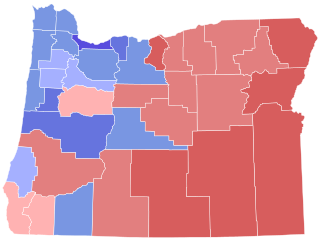
The 2014 United States Senate election in Oregon took place on November 4, 2014 to elect a member of the United States Senate to represent the State of Oregon, concurrently with the election of the Governor of Oregon, as well as other elections to the United States Senate in other states and elections to the United States House of Representatives and various state and local elections.















